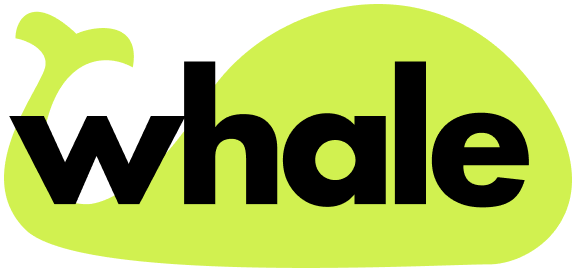Basics of stock market
Here is a quick summary of some basic stock market terms you might want to know about;
A stock is a share of ownership in a company. When you own a stock, you have the right to vote on corporate matters and/or collect dividends. Companies sell stocks to investors to raise capital to finance and grow their operations and profits.
There are a few reasons why you might want to consider owning stocks:
- To make money: When you buy a stock, you buy a piece of company ownership. If the company does well, the stock price will go up, and you can sell the stock for a profit.
- To get dividends: Companies often pay out a portion of their profits to shareholders in the form of dividends. If you own stock in a company that pays dividends, you will receive a payment from the company every quarter.
A ticker symbol is a short code used to identify a company on an exchange. For example, the ticker symbol for Apple Inc. is AAPL.
The day a new company gets listed on a stock exchange is called its “initial public offering” or IPO.
This means that the original owners sell company shares to the general public, and the company gets listed on a stock exchange. Once this happens, the business belongs not only to its original founders but to everyone who’s invested in it—collectively known as shareholders.
When a company goes public...
When a company wants to go public, they hire an underwriter. An underwriter’s job is to find the right price to start offering the shares to the public. They do this by either pricing the shares with a fixed price or building a book of potential buyers.
Companies usually go public to raise money by selling company shares to investors. The funds raised can be used to finance expansion, pay debts, or for other purposes.
A stock exchange is a marketplace where stocks and other securities are traded between investors. Most stock exchanges are open to the public and operate during regular business hours. Common stock exchanges in the United States include the New York Stock Exchange (NYSE) and the Nasdaq Stock Exchange.
Different focus for each stock exchange
Each stock exchange has a different focus, offering different benefits to investors. For example, the NYSE is focused on large, well-established companies. In contrast, the Nasdaq is focused on smaller, more innovative companies.
How is the stock exchange different from the stock market?
A stock market is a collection of markets where stocks and other securities are traded. A stock exchange is a specific market where stocks and other securities are traded. For example, the NYSE is a stock exchange, and the stock market refers to the collection of all markets, including the NYSE.
The S&P500 is a stock market index that tracks the 500 largest publicly traded companies in the United States. The index is widely regarded as a barometer for the health of the U.S. stock market and economy.
Standard and Poor's
The S&P500 was created in 1957 by Standard & Poor's, a financial data and analysis firm. The index originally tracked 400 companies but was expanded to 500 in the 1970s. Obviously, since then, the 500 companies have changed. Today, the S&P 500 is one of the world's most widely followed stock market indexes.
There are many other stock market indexes that track different aspects of the market, such as the Dow Jones Industrial Average (which tracks 30 large U.S. companies) or the Nasdaq Composite (which tracks all tech companies listed on the Nasdaq stock exchange).
A stock split is a corporate action decided by a company's board of directors, where the company increases the number of its outstanding shares by issuing more shares to current shareholders.
The market cap of a company is the total value of all of its shares of stock. This is found by multiplying the total number of shares by the price of one share. For example, if a company has 100,000 shares outstanding in the market and each share is $100, then the market cap of the company will be $10,000,000.
There are different market cap categories;
Small cap: A small market cap is typically under $2 billion.
Mid-cap: A mid-market cap is between $2 and $10 billion.
Large-cap: A large market cap is over $10 billion.
Correspondingly, Whale only prefers to invest in large-cap businesses.
The term "bullish" is used to describe a variety of things in the financial world, but it always refers to an optimistic outlook. When you're bullish about a stock, you believe its price will go up. If you're bullish about the market as a whole, you believe the prices of most stocks will go up.
A bullish market
Basically, a bullish market is a market where prices are rising. Also this can be caused by many factors, such as economic growth, inflation, or central bank policy. Besides, bullish markets are typically characterized by high levels of trading activity and strong investor confidence.
A bear market is where the entire index and the whole market are on a downtrend. Bear markets happen once every eight to ten years, triggered by an economic or financial crisis, wars, or other outlier events such as a Pandemic, and last anywhere from 6 months - 3 years.
During a bear market...
eight out of ten company prices will go down together with the market, even though these companies are fundamentally great businesses with continuous growth. Why does this happen? Because of emotions, people become fearful, and they panic sell everything. (don't be one of those who panic sell.) Expect to see a collapse in good companies as well as bad companies during a bear market.
Unlike most people, a bear market is the favorite time of smart investors because it's not only a great time to buy companies at huge discounts, but also, historically, recovery happens quite fast after a bear market.
Remember, the steeper the downtrend is on a bear market, the stronger the bounce back will be. According to historical data, for every 1% the market takes during a bear market, it returns 4.8% once recovered!
Whale App: A Beginner investor’s best friend How I learned to stop worrying and love the Stock Market – My Whale App Review: Beginner investor’s best friend app I know firsthand how overwhelming it can be to enter the stock…





